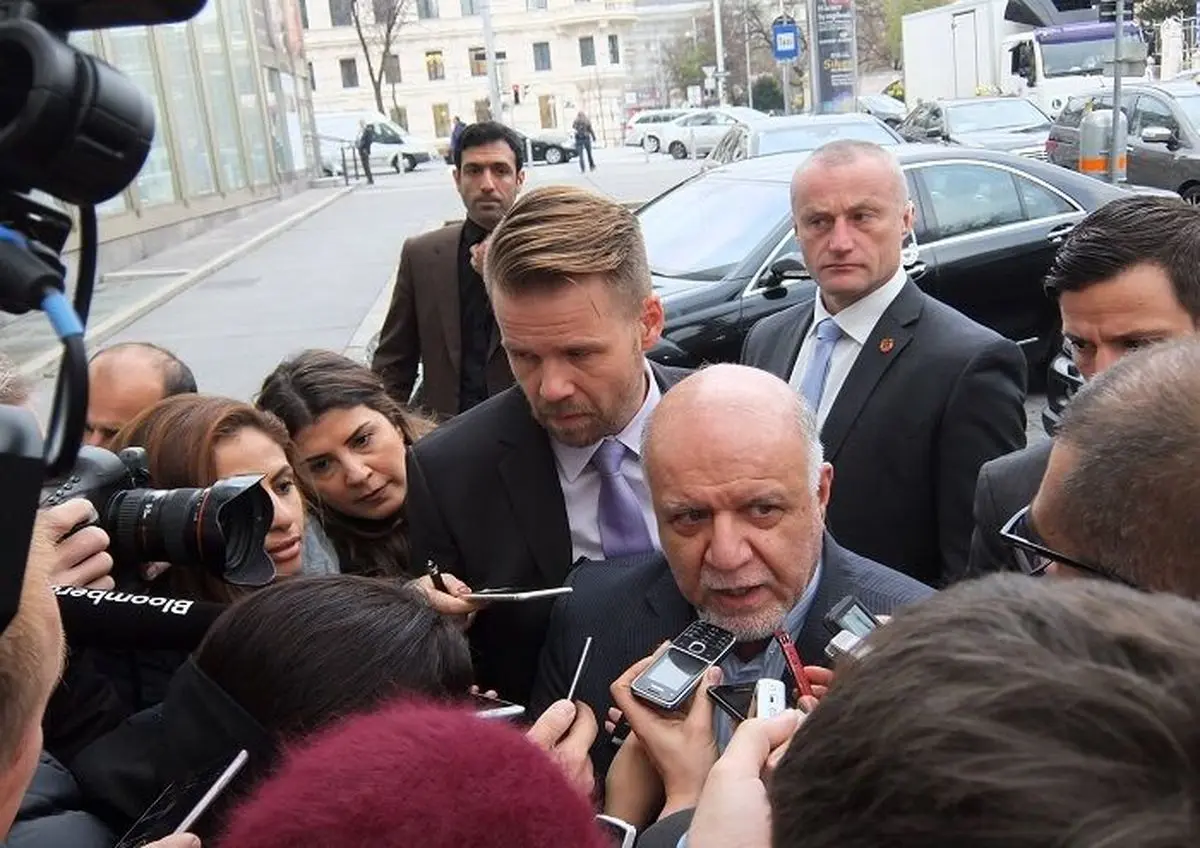Iran confirms OPEC statement at OPEC, Non-OPEC ministers' meeting

Iran's Petroleum Minister Bijan Namdar Zangeneh said that the statement issued after the sixth meeting of OPEC and Non-OPEC ministers in Vienna was endorsed by Iran.
Zangeneh, who left the meeting after the opening remarks to depart for Tehran, told reporters that the statement entails articles to extend the agreement to reduce production by one million and 200,000 barrels of OPEC and non-OPEC members, as well as OPEC and Non-OPEC cooperation charter.
After nearly 7 hours of discussion, OPEC ministers agreed yesterday to extend the agreement to reduce oil production for another nine months, approve the draft text of OPEC and non-OPEC cooperation charter and extend Secretary-General Mohamed Barkindo's capacity for another three-year period.
Based on an agreement, OPEC member states continue to agree to reduce their daily production of 800,000 barrels by the end of March 2020, and non-OPEC countries will today decide on a continuation of their 400,000 barrel daily reduction commitment.
Iran's Petroleum Minister last night told journalists that Iran's demands were realized at the OPEC summit, saying Iran, like the previous meeting of OPEC, was exempted from the agreement to cut oil production.
He also commented on the OPEC and non-OPEC partnership,” Fortunately, all of the provisions of the OPEC and Non-OPEC Charter have been implemented; the decisions of this charter are not binding and will not create an obligation for the countries.
Zangeneh argued that countries were allowed to obtain, if necessary, government licenses and higher authorities, noted, "It was explicitly stated in the final statement of the OPEC meeting that the Charter does not affect OPEC's decisions and mechanisms.”
The 176th meeting of the Organization of Petroleum Exporting Countries (OPEC) was opened on Monday at the presence of ministers from 14 member states, including Iran's petroleum minister, Bijan Namdar Zangeneh, at the permanent headquarters of the organization in Vienna, the capital of Austria.
The OPEC meeting has been held at a time when threats of zeroing Iran's oil exports, US-China trade tensions, increased US oil production and exports, increased OECD oil reserves, attacks on oil tankers in the Oman Sea and The G-20 summit has also been one of the most important issues in the oil market since its previous meeting.
END
